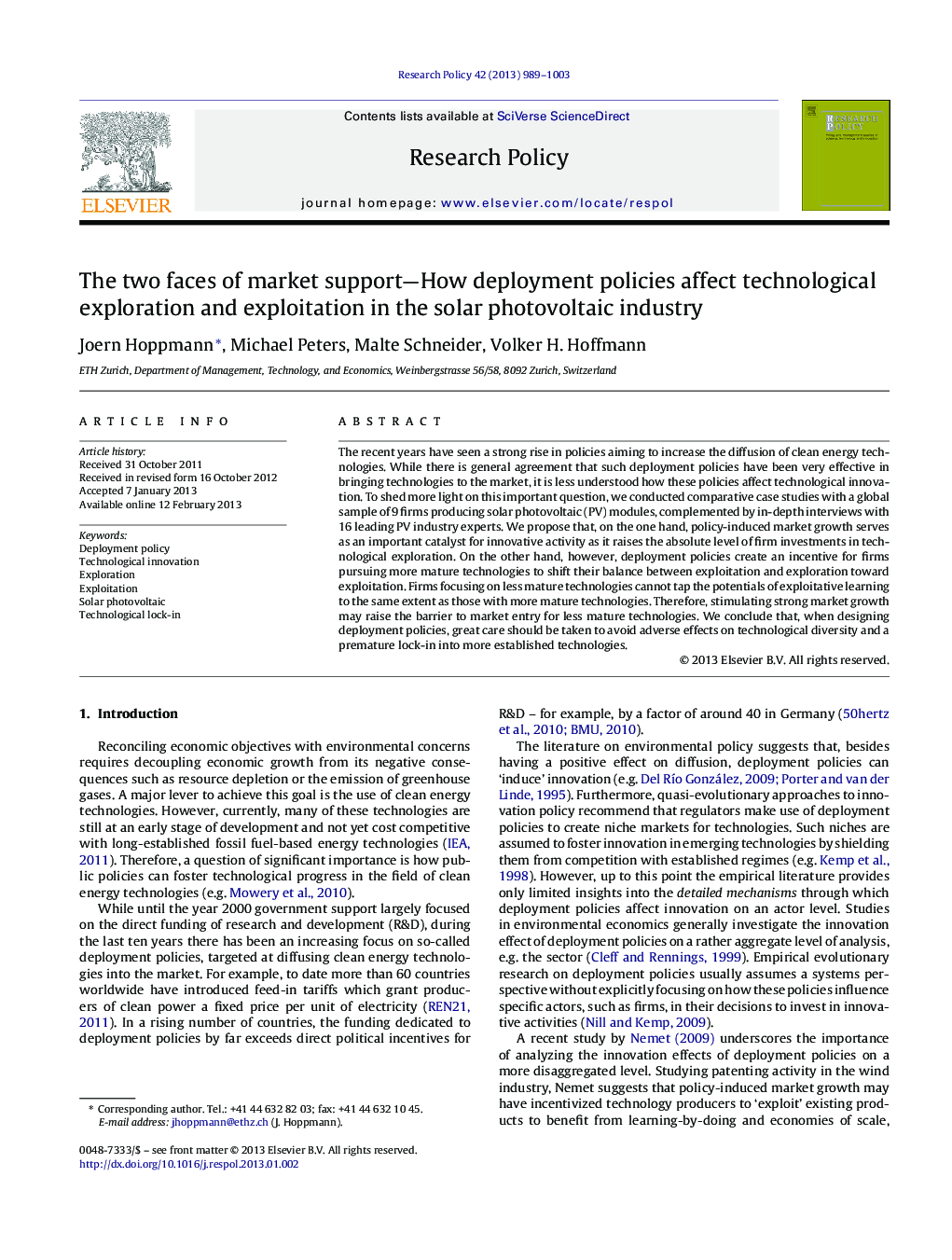| Article ID | Journal | Published Year | Pages | File Type |
|---|---|---|---|---|
| 985095 | Research Policy | 2013 | 15 Pages |
The recent years have seen a strong rise in policies aiming to increase the diffusion of clean energy technologies. While there is general agreement that such deployment policies have been very effective in bringing technologies to the market, it is less understood how these policies affect technological innovation. To shed more light on this important question, we conducted comparative case studies with a global sample of 9 firms producing solar photovoltaic (PV) modules, complemented by in-depth interviews with 16 leading PV industry experts. We propose that, on the one hand, policy-induced market growth serves as an important catalyst for innovative activity as it raises the absolute level of firm investments in technological exploration. On the other hand, however, deployment policies create an incentive for firms pursuing more mature technologies to shift their balance between exploitation and exploration toward exploitation. Firms focusing on less mature technologies cannot tap the potentials of exploitative learning to the same extent as those with more mature technologies. Therefore, stimulating strong market growth may raise the barrier to market entry for less mature technologies. We conclude that, when designing deployment policies, great care should be taken to avoid adverse effects on technological diversity and a premature lock-in into more established technologies.
► We examine how deployment policies affect firm-level technological innovation. ► Deployment policies raise corporate investments in exploration. ► Deployment policies induce firms with mature technologies to focus on exploitation. ► Firms with less mature technologies cannot equally benefit from exploitation. ► Deployment policies need to be carefully designed to avoid technological lock-ins.
